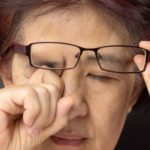Presentation to Highlight Feasibility and Interest in Decentralized Home-Based Phase 3 Trial
Salt Lake City, Utah — December 5, 2024 — PhotoPharmics, a pioneer in non-invasive phototherapy for neurological disorders, today announced it will present a poster titled “An Entirely Remote, Home-based Phase 3 Clinical Trial of a Specialized Light Therapy Device for Parkinson’s Disease – Interest and Feasibility” at the Parkinson Study Group (PSG) Annual Meeting in Nashville, Tennessee. The poster session is scheduled for Thursday, December 5, from 5:00–7:00 PM CST.
The presentation will highlight recruitment and enrollment results from the company’s innovative Phase 3 Light for PD clinical trial and highlights the feasibility and interest in a fully remote, home-based study design for its Celeste light therapy device.
A New Era in Decentralized Parkinson’s Trials
The trial represents a significant step forward in clinical research, with nearly 3,000 participants completing the eligibility questionnaire across all 50 U.S. states. Of these, 1,316 individuals were identified as potentially eligible, showcasing strong interest in decentralized trials.
“We are excited to share the success and insights of this fully remote trial design,” said Kent Savage, Chief Executive Officer of PhotoPharmics. “The results so far demonstrate the power of remote trials to improve accessibility and inclusion in clinical research. This model has the potential to transform how we conduct trials for Parkinson’s disease and beyond. It’s on the cutting edge of telemedicine, showing us that access to specialists is possible for those who otherwise would not be able to participate.”
(click image to view poster)
Remote Trial Design and Participant Insights
Participants in the Light for PD trial use the Celeste device, a specialized phototherapy treatment, at home for one hour each evening over a six-month period. Clinical outcomes, including changes in the Parkinson’s Disease Questionnaire (PDQ-39) and the Movement Disorder Society Unified Parkinson’s Disease Rating Scale (MDS-UPDRS), are monitored remotely.
Early findings reveal that while some participants faced challenges with remote consent and software use, device setup and operation were universally successful. Enrolled participants averaged 67.8 years of age, with a mean Parkinson’s disease duration of 6.8 years.
“Remote trials like Light for PD can break down barriers that prevent people in rural or underserved areas from accessing innovative therapies,” Savage added. “People with Parkinson’s who typically don’t have access to clinical trials are particularly interested in our trial. This is about inclusivity, patient convenience, and moving closer to real-world results for therapies like Celeste.”
Authors of the poster presentation include Ray Dorsey, Dan Adams, Suzanne Hendrix, Bradley Wyman, Christi Alessi-Fox, Jamie Adams, Karen Clark, Michelle Porto, Grace Nkrumah, Katrina Schmier, Kathryn Murphy, Sarrah Hussain, Melissa Kostrzebski, and Karl Kieburtz.
Invitation to Learn More
The PhotoPharmics team invites attendees of the PSG Annual Meeting to visit their poster presentation on December 5 to explore the trial design, early results, and implications for future clinical research.
About PhotoPharmics
PhotoPharmics is a privately held, clinical-stage medical device company developing next-generation treatments for treating neurodegenerative disorders through the eyes. Company founders have 30+ years of research and experience in this field. They previously developed specialized light solutions now widely used to regulate circadian rhythms for seasonal affective disorder, sleep disorders, anxiety, and depression (acquired by Philips-Respironics in 2007).
Drawing from research and recent trials, PhotoPharmics is developing applications of specialized light across several neurodegenerative diseases. The company aims to make a clinically meaningful difference in patient’s lives by delivering safe and effective treatments. Learn more at www.photopharmics.com.
###
PR12002




